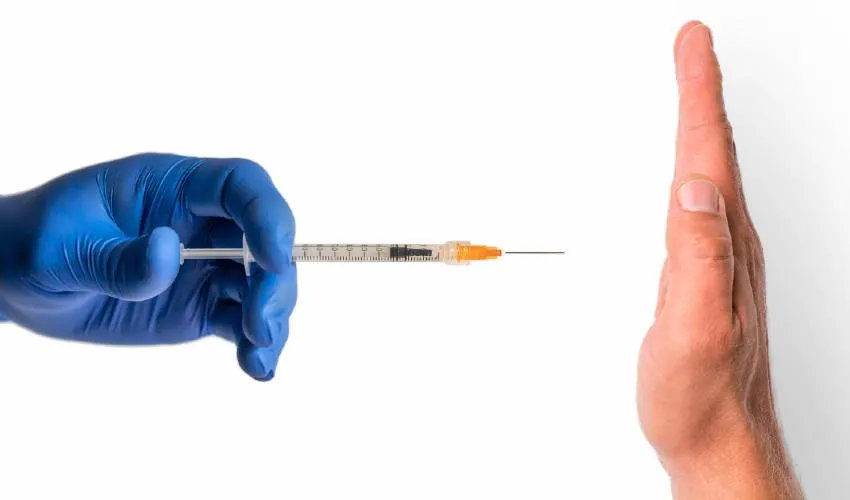
What's Left of the Pandemic
The outbreak of COVID-19 in February 2020 abruptly impacted the course of IMMUNE, Alessia Melegaro's research project on epidemiological modeling with behavioral dynamics funded by the European Research Council at the end of that year, but conceived and submitted just before the SARS CoV-2 virus appeared.
The project, which used to be primarily focused on understanding and modeling the decision-making and the behavioral mechanisms behind vaccine hesitancy with respect to diseases such as measles or meningitis, ended up dealing mainly with COVID-19, exploring the social dimensions of other preventive behaviors such as mask use, social distancing, and personal hygiene as well. "In those months, we were able to observe people's behavior on a large scale and in real life with respect to the containment strategies put in place by national and local public health institutions and to assess their causing factors at different pandemic stages, with different levels of risk and severity," says Melegaro, Full Professor of Demography and Social Statistics at Bocconi.
"We have observed that the emergency situation had caused unusual patterns," she says. "For example, there has been a sharp polarization between those in favor of and against vaccines: in normal times, so to speak, and for other diseases, a good part of the population is in the middle, lukewarm and undecided. With COVID, however, everyone felt the need to take sides joining one camp or the other. Now that the emergency is over, people's attitudes are also returning to the previous state."
Some of the studies produced by IMMUNE have investigated the determining factors behind attitudes toward vaccination and the styles of communication most likely to promote its acceptance. A still-ongoing analysis of more than 26 million posts published on Reddit debunks the hypothesis that behaviors were following the formation of echo-chambers (situations in which individuals tend to interact only with people with similar opinions and consume only media that align with their pre-existing views). Instead, the strongest and most widespread motivation for refusal seems to be the opposition to mandatory vaccination.
As for how the COVID-19 vaccine is communicated, two studies have assessed the effectiveness of altruistic messages stressing the fact that getting vaccinated is also a way to protect those who, for various reasons, do not have the option to do likewise. Such tones seem to be effective to some extent, under certain conditions, for promoting adult vaccination, but much less so when adults have to decide whether to vaccinate their children or not.
One experiment suggested that the best arguments for the call to altruism to be effective are: highlighting circumstances in which people have experienced a condition of dependence on others; depicting cooperation as a widespread social norm; and emphasizing the existence of weak individuals in society. A second experiment showed that referring to herd immunity has some effect on the general population, but not on parents who, when they have to decide whether or not to vaccinate their children, are much more sensitive to messages about the risks of the disease.
Cultural differences appear to influence the effectiveness of communication related to preventive behaviors such as wearing a face mask. An Italy vs United States comparison shows that informing people that wearing a face mask protects others increases its use in America, but not in Italy. Placing emphasis on one's own protection, on the other hand, has similarly little effect in both countries. On both sides of the Ocean, individuals let themselves be influenced by other people's behavior: when mask use becomes widespread, even the most reluctant end up wearing it.
Finally, while people's attitudes and behavior seem to have returned to normal, the same cannot be said about the number and intensity of social relationships. Studying data collected during and after the pandemic, there is a lasting effect on the number of social interactions, which, in line with several other European countries, has dropped significantly. According to a survey conducted in Lombardy and more recently nationwide, this number, which is important for predicting the speed at which an epidemic could spread, has almost halved due to phenomena such as remote working, new mobility options and changing individual habits.
As is always the case with ERC projects, IMMUNE brought together a large group of scholars from different disciplines and at different stages of their careers. The working group, as well as Alessia Melegaro, also includes Zhina Aghamohammadi, Duilio Balsamo, Chiara Chiavenna, Maria Cucciniello, Elena D'Agnese, Lorenzo Lucchini, Laura Pasqua Leone, Filippo Trentini, Vittoria Offeddu and an outside advisory board.
Read more:
Personal risk or societal benefit? Investigating adults' support for COVID-19 childhood vaccination. Vaccine 41.25 (2023): 3683-3687 (with Chiara Chiavenna et al.)
Altruism and vaccination intentions: Evidence from behavioral experiments. Social Science & Medicine 292 (2022): 114195. (with Maria Cucciniello, Paolo Pin et al.)
Investigating the relationship between interventions, contact patterns, and SARS-CoV-2 transmissibility. Epidemics 40 (2022): 100601. (with Filippo Trentini, Nicoletta Balbo et al.)
Public opinion on global rollout of COVID-19 vaccines. Nature medicine 27.6 (2021): 935-936. (with Philip M. Clarke et al.)
Rapid review of social contact patterns during the COVID-19 pandemic. Epidemiology (Cambridge, Mass.) 32.6 (2021): 781. (with Liu, Carol Y., et al.)
Experimental evidence that changing beliefs about mask efficacy and social norms increase mask wearing for COVID-19 risk reduction: Results from the United States and Italy. PloS one 16.10 (2021): e0258282. (with Maria Cucciniello, Paolo Pin et al.)
Social contact patterns and implications for infectious disease transmission–a systematic review and meta-analysis of contact surveys. Elife, 10 (2021), e70294. (with Mousa et al.)
COVID-SCORE: A global survey to assess public perceptions of government responses to COVID-19 (COVID-SCORE-10). PloS one 15.10 (2020): e0240011. (with Francesco Billari et al.)